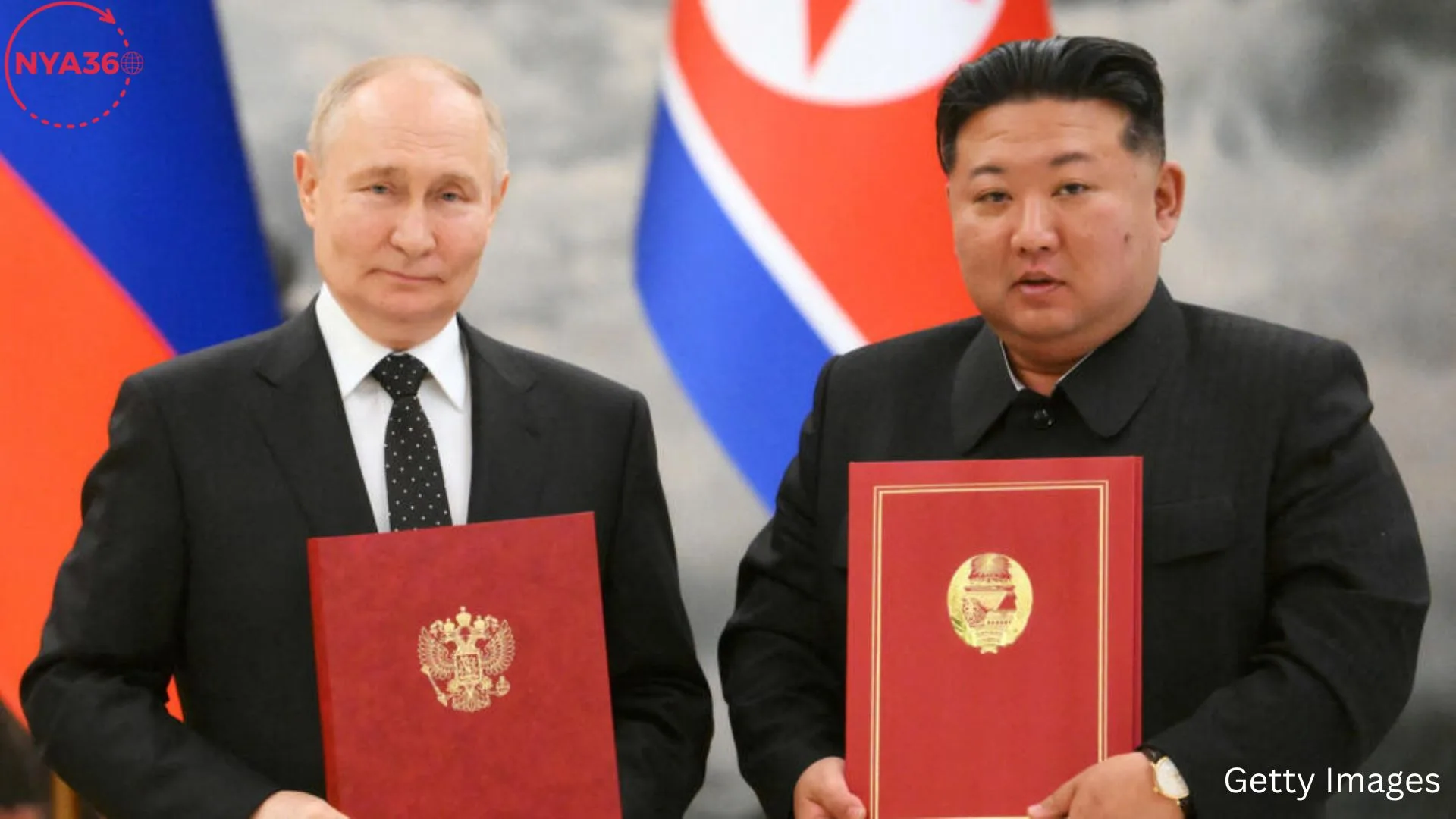Russian President Vladimir Putin has proposed the possibility of providing North Korea with long-range missiles and advanced technologies, which would mark a huge increase in international tensions. This action is a direct response to the continuing crisis between Russia and Ukraine, in which the United States and NATO have been providing military assistance to Ukrainian President Volodymyr Zelensky. The announcement has generated extensive apprehension regarding the potential consequences for global security and East Asia’s fragile equilibrium of power.
During a news conference, Putin alluded to the potential for enhancing military collaboration with North Korea. “Should the Western nations persist in providing military equipment to Ukraine, we must contemplate all possible courses of action to safeguard our strategic interests,” declared Putin. This statement is perceived as a distinct caution to the United States and NATO, indicating that Russia can offset its measures by enhancing its connections with Pyongyang. North Korea, which is already facing stringent international sanctions due to its nuclear and missile programs, has the potential to acquire sophisticated military technology from Russia. This advancement would greatly augment North Korea’s offensive capabilities, presenting a fresh regional and global security obstacle.
The potential for North Korea to obtain long-range missiles and other sophisticated military technologies from Russia carries significant consequences. Such an action has the potential to disrupt the already unstable situation on the Korean Peninsula and intensify tensions with neighboring countries, namely South Korea and Japan. Both states are crucial partners of the United States and have strong defense obligations in the region.

The Ministry of National Defense in South Korea has expressed serious reservations regarding the proposed agreement. “The provision of long-range missile technology to North Korea poses a significant risk to the security of the Korean Peninsula and the wider region.” A representative from the ministry expressed the need for Russia to reassess this action, which is seen as aggressive.
Japan, in light of North Korean missile tests, has been enhancing its missile defense systems and has also expressed strong disapproval of the possible supply of weapons. Japanese Prime Minister Fumio Kishida convened an urgent session of the National Security Council to address the possible consequences and devise a course of action.
Vietnam Prepares for Putin’s Visit
After his involvement with North Korea, President Putin is set to visit Hanoi, the capital of Vietnam, later today. Vietnam has undertaken several dress rehearsals and implemented security precautions to ensure a smooth and successful visit by Putin. This journey highlights Russia’s endeavors to enhance its connections with other communist states in the face of increasing alienation from the Western world.
Putin will convene with the leaders of Vietnam’s communist government in Hanoi to deliberate on the augmentation of trade relations and strategic collaboration. Vietnam, known for its historical practice of maintaining a delicate equilibrium between influential nations, is seeking to strengthen its economy by cultivating a range of international collaborations. Enhancing ties with Russia has the potential to provide Vietnam with fresh prospects for commercial and military collaboration.

The Foreign Ministry of Vietnam issued a statement emphasizing the importance of Putin’s visit. The presence of President Putin signifies a significant achievement in the all-encompassing strategic alliance between Vietnam and Russia. We anticipate engaging in a discussion regarding strategies to improve collaboration in the areas of trade, investment, and defense.
The possibility of Russia providing weapons to North Korea has provoked significant responses from the global community. The United States has denounced the proposal, highlighting the perils of exacerbating regional instability. Supplying North Korea with sophisticated military capabilities would be an imprudent and perilous decision. A State Department official urged Russia to abstain from measures that could exacerbate tensions and compromise global security. The NATO Secretary-General, Jens Stoltenberg, also expressed his opinion, calling for moderation and communication. The possible transfer of intercontinental ballistic missiles to North Korea is highly alarming. All parties must participate in productive discourse to avert an escalation of armaments and guarantee stability in the region.
🇻🇳🇷🇺VIETNAM HOLDS DRESS REHEARSAL FOR PUTIN’S VISIT
After North Korea, his next stop will be Hanoi, Vietnam’s capital, where Putin will meet with leaders of the country’s communist government to strengthen trade ties.
Putin is scheduled to arrive in Vietnam later today.… pic.twitter.com/oFGUR6WIHU
— Mario Nawfal (@MarioNawfal) June 19, 2024
China, a crucial friend of North Korea and a vital partner of Russia has maintained a reasonably impartial stance in its public declarations, urging for peaceful ends to crises and promoting stability in the region. As Putin proceeds with his diplomatic tour, including visits to North Korea and Vietnam, the global community observes. The possible delivery of sophisticated military equipment to North Korea signifies a notable change in international relations, underscoring the growing division between key global powers. The consequences of these actions have a significant impact, not only on the security situation in East Asia but also on the whole geopolitical environment.
As Vietnam gets ready to receive Putin, the rest of the world is trying to understand and deal with the possible outcomes of these events. The upcoming days and weeks will play a crucial role in determining if diplomatic endeavors can prevent further escalation and uphold a sense of stability in an ever more chaotic global landscape.
Follow us on social media: Instagram, Threads & Twitter X @nya360_ YouTube & Facebook @nya360.





